 Hypoglycemia (Low Blood Sugar) Causes and Natural Solutions
Hypoglycemia (Low Blood Sugar) Causes and Natural Solutions
Blood sugar imbalances are very common in today’s society. Both high and low blood sugar can have undesirable effects on the human body. Many people realize that hyperglycemia is a harmful state that can lead to things like diabetes and obesity over time. What is not talked about enough, however, is hypoglycemia and why you want to avoid it.
In this article we will discuss what hypoglycemia is, common causes and symptoms, along with things you can do to improve it. If you often find yourself suddenly becoming ravenously hungry or having massive energy dips throughout the day, then this likely pertains to you.
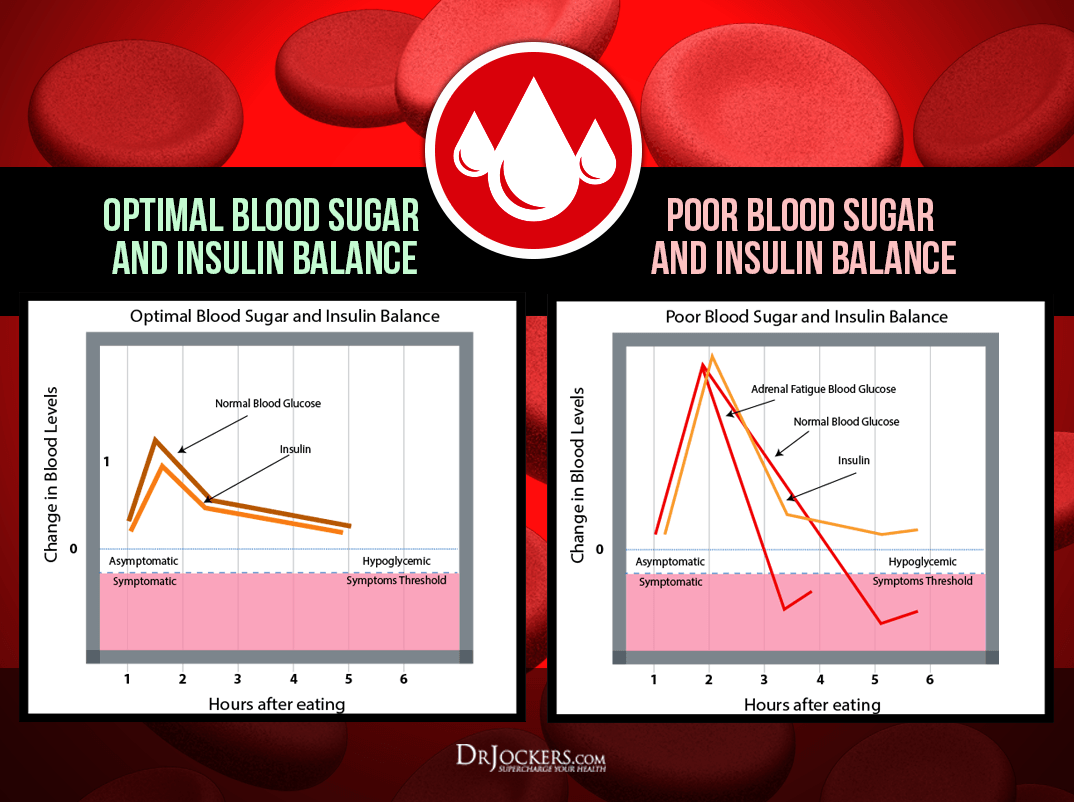
What is Hypoglycemia
Hypoglycemia is when blood sugar drops below the normal threshold for the body. This is typically below 70 mg/dL for most people. This state is commonly reached in three ways:
- Too many fast-digesting carbs are consumed per meal, leading to a large spike in insulin that quickly drops blood sugar
- You burn up your sugar stores and the body is not adapted to utilize fats as an alternative energy source
- In diabetic patients, too much insulin was administered following a meal
When blood sugar drops this low, the body goes into a panic state that can cause many different symptoms.
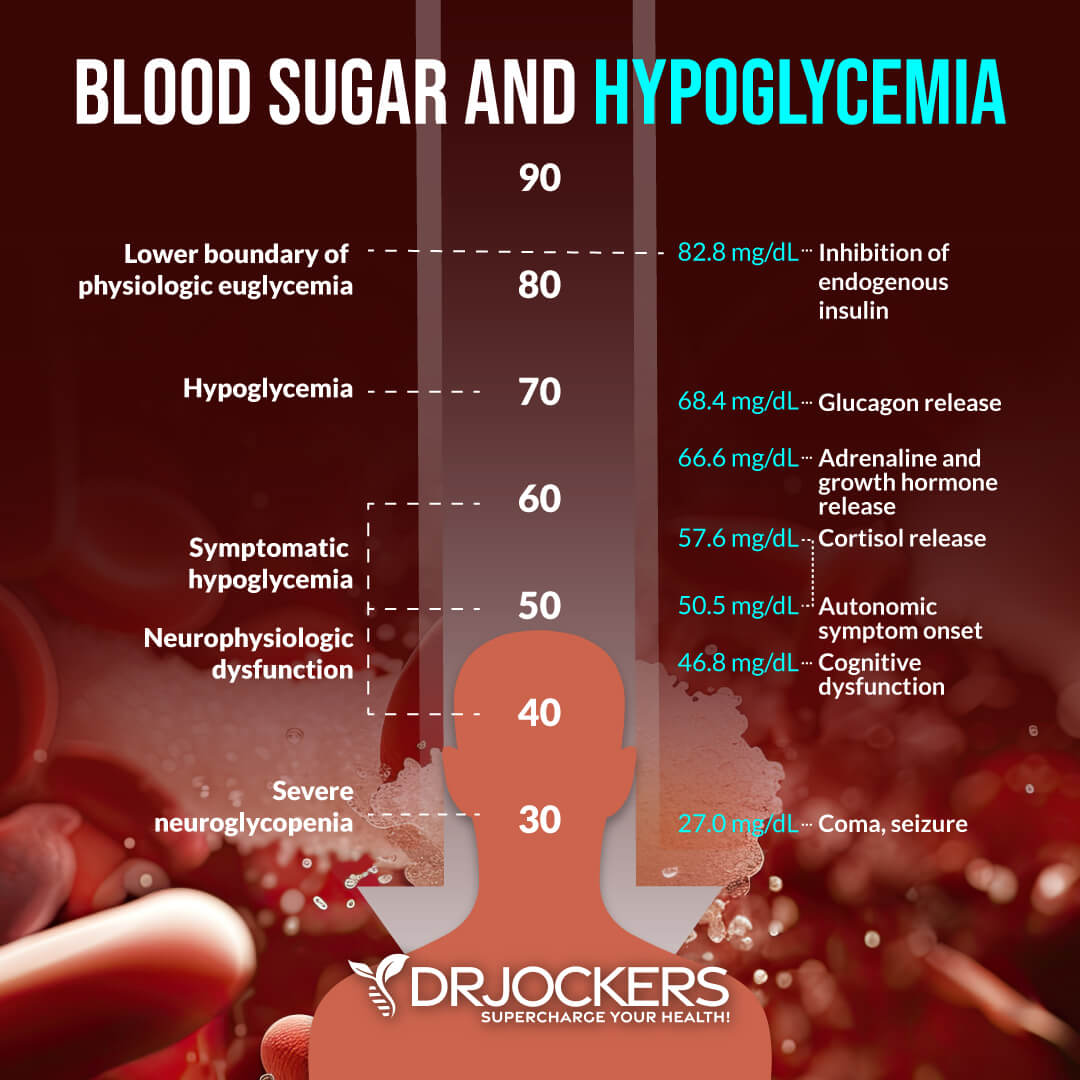
Symptoms of Hypoglycemia
When blood sugar drops below the body’s threshold, several things happen. Immediately there will usually be a spike in cortisol. Cortisol is serves the function of releasing stored sugar from the liver to increase blood sugar temporarily. In times of stress this serves to provide an immediate energy source. In this context, it serves the role of preventing hypoglycemia.
Symptoms of Hypoglycemia include:
- Tiredness
- Moodiness
- Irritability
- Muscle weakness
- Sudden Hunger
- Shakiness in the hands
Particularly if you notice that this occurs around 3 hours after a meal, you are likely experiencing hypoglycemia. This can be confirmed by using a blood glucose monitor to measure your blood sugar.
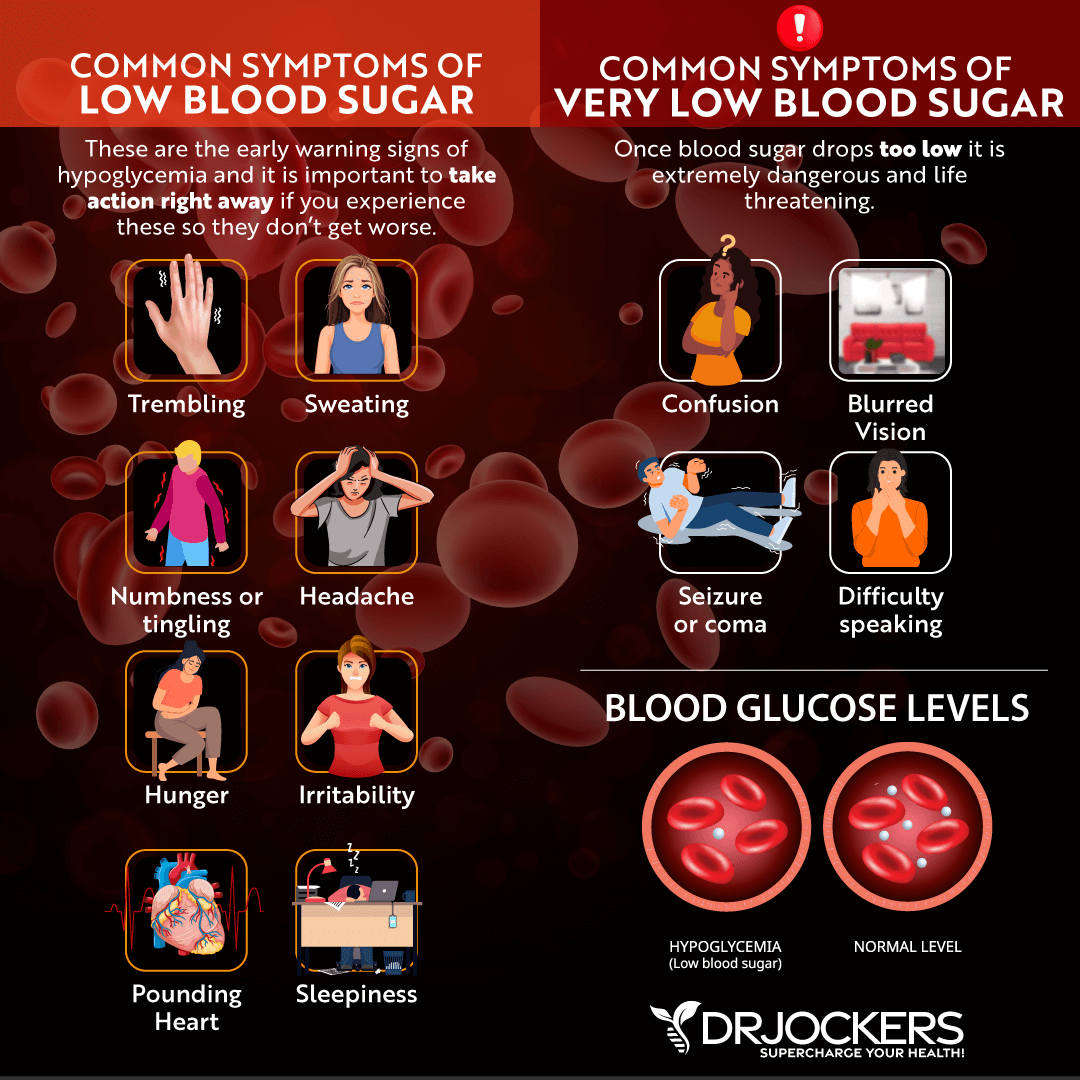
The Pancreas & Blood Sugar
When we discuss hypoglycemia, it helps to understand how blood sugar is controlled. The pancreas creates two primary hormones that play regulatory roles in maintaining blood sugar levels. These two hormones are insulin and glucagon.
Insulin is released when we consume carbs. Carbs increase blood sugar and insulin helps to get that sugar out of the blood and into the muscles and liver as glycogen. When excess sugar is consumed, it is stored as fat or cholesterol.
Glucagon serves the opposite role of increasing blood sugar by stimulating the release of stored sugars in the liver. It is stimulated by low blood sugar, cortisol, and protein consumption. Glucagon also promotes fat burning.
When over productive insulin and overconsumption of carbs is leading to hypoglycemia, stimulating glucagon may play a therapeutic role in maintain stable blood sugar (1).
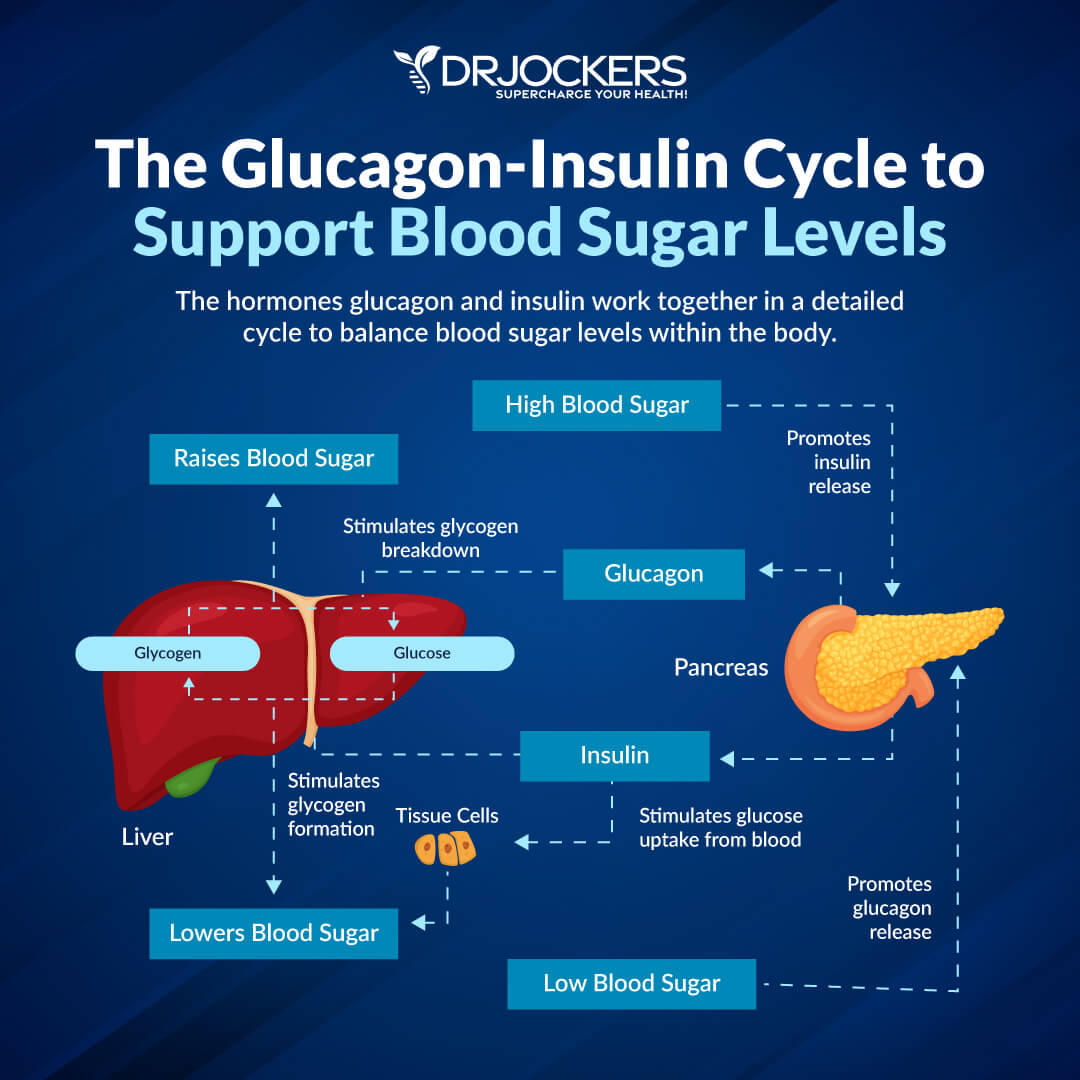
Natural Solutions for Hypoglycemia
Now that we have established a baseline understanding of blood sugar balance, we can discuss strategies to overcome hypoglycemia. If hypoglycemia is something you experience on a regular basis, it is likely going to take a multitude of strategies to fully take control of this reaction.
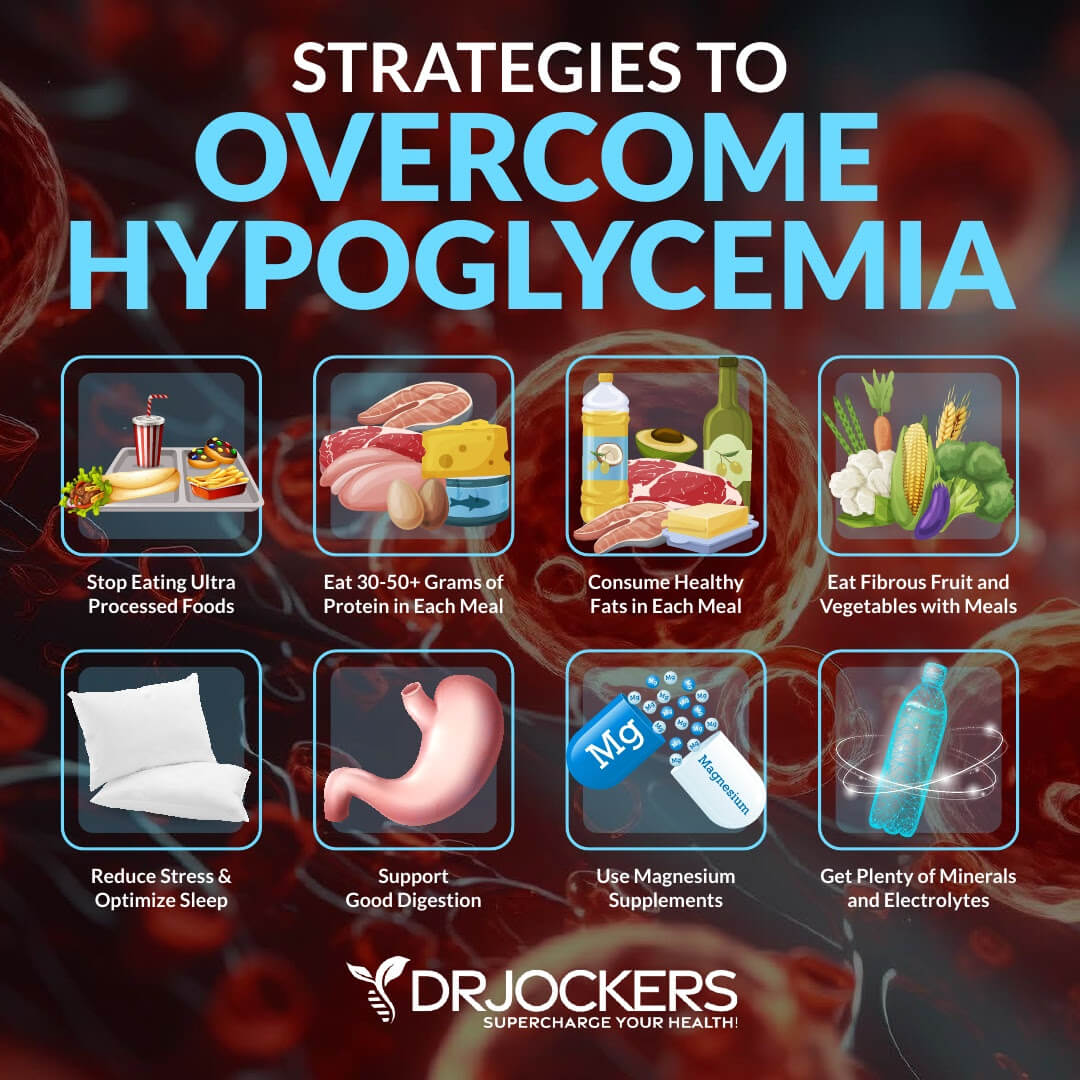
Reduce Carb Intake
First and foremost it is important to reduce carb intake. It is the constant bombardment of carbs that leads to massive fluctuations in blood sugar. When blood sugar spikes, so does insulin. High insulin causes blood sugar to crash.
Those following a standard American diet tend to consume anywhere between 300-500 carbs per day. A more suitable range to begin with would be somewhere between 100-150 grams. Ideally this would come from low glycemic sources like root vegetables, organic berries, granny smith apples, grapefruit, and small amounts of raw honey. Lowering carb intake to about 30 grams per meal seems to provide desirable effects in some individuals (2).
Finally, opting for high-fiber foods will further slow the release of sugar into the blood while feeding beneficial in the gut that produce butyrate. Butyrate is a short chain fatty acid that can provide many metabolic benefits to the body and may provide benefits for those with metabolic disorders (3).
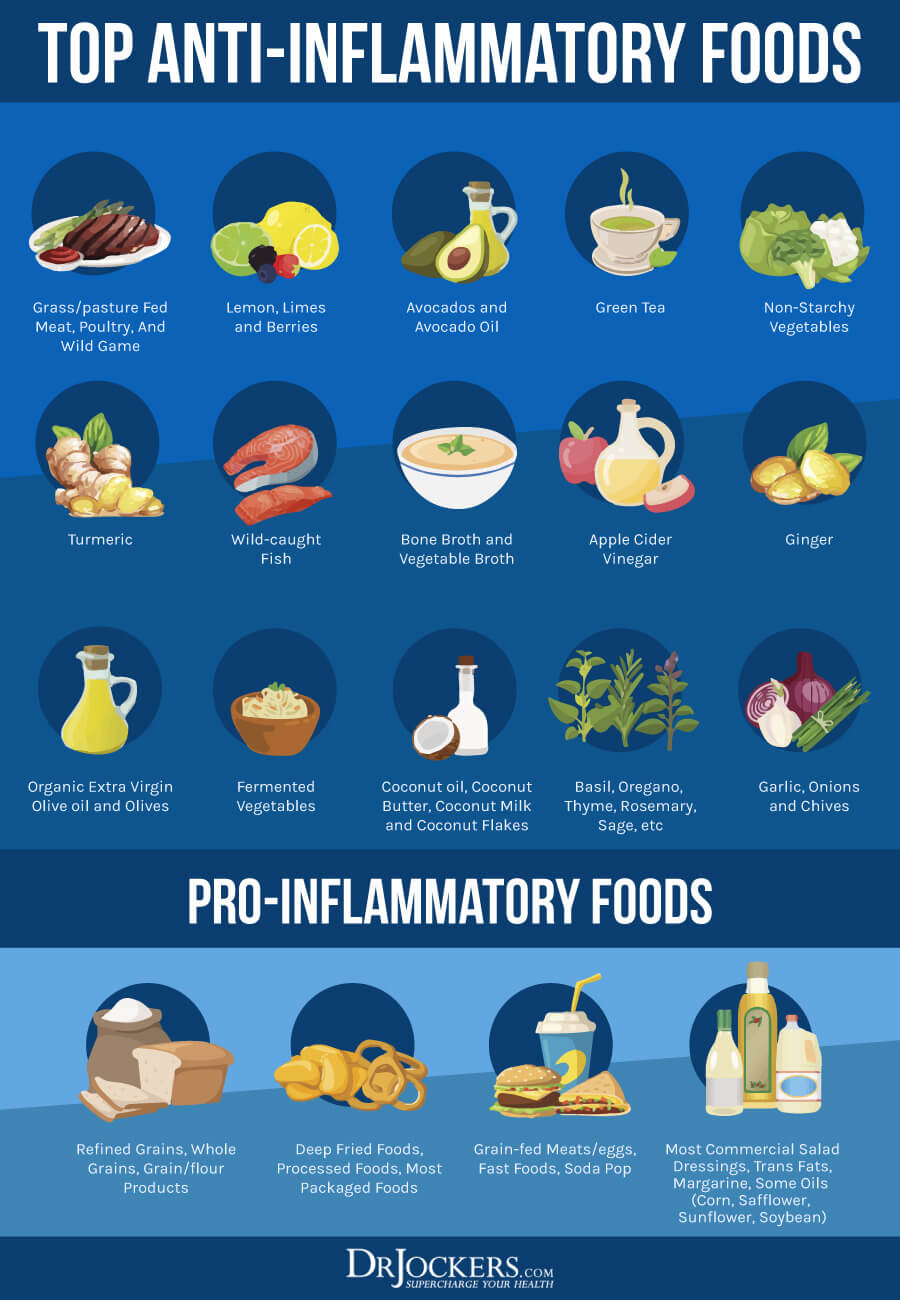
Healthy Fats
When reducing carb content, replacing those calories with healthy fats helps to further stabilize blood sugar. Eventually working on turning to fats as a primary energy source over carbs can be very helpful (more on this later). In the initial stages of lowering carb intake, they will serve the role of satiating the appetite.
Combining healthy fats with carb-containing foods helps to lower the glycemic response to many foods. This serves to stabilize blood sugar and prevent recurrent hypoglycemia after meals.
This would also be a great time to begin using MCT oils throughout the day. MCT is an isolated component of coconut oil that is easily used as energy by the body. MCTs are readily converted into ketones which provide the brain and body with an alternative energy source. This effect has shown positive effects in Type I diabetics who often suffer from hypoglycemia (4).
The best healthy fat sources can be found in the graphic below.
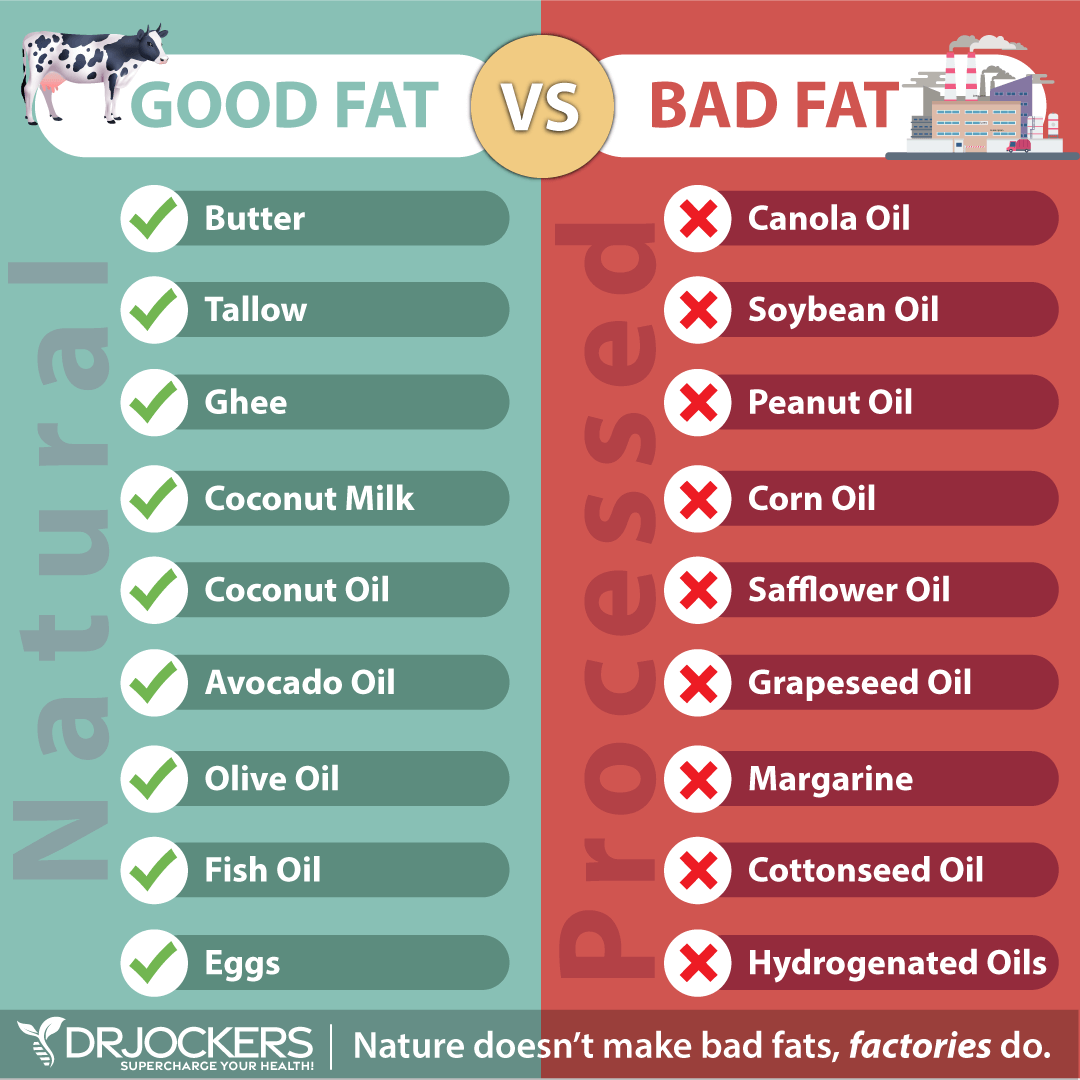
Clean Protein
Finally, a complete meal for those who suffer from hypoglycemia should also contain about 30-50 grams of clean protein. Protein helps to stimulate glucagon release to naturally stabilize blood sugar and improve fat burning.
Having a good source of protein with carb-containing meals also helps to slow down digestion and prevent large blood sugar spikes.
Some of the best sources include grass-fed meats, pasture-raised eggs, wild-caught fish, and bone broth.

Manage Stress
When under stress, the body will tend to secrete cortisol. Cortisol stimulates the pancreas to release glucagon (5). As we have discussed, glucagon stimulates the liver to release stored sugar into the blood.
While this can have benefits short-term, over time this reaction can lead to low cortisol output and an inhibited ability to increase blood sugar when it becomes low.
Strategies to mitigate stress and balance cortisol will go a long way in mitigating hypoglycemia. These include reducing caffeine intake, balancing stress with relaxing activities, and utilizing certain soothing herbs as necessary.
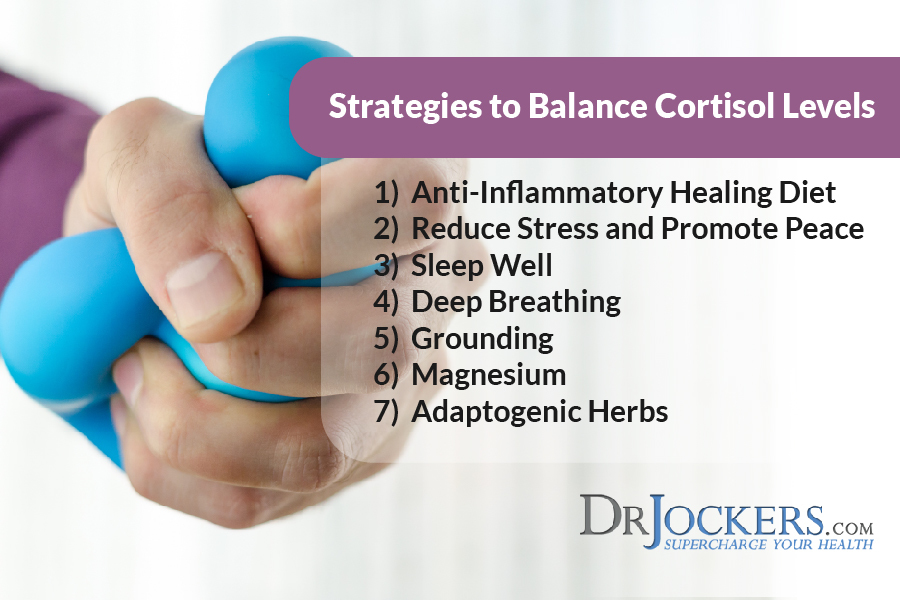
Optimize Sleep
Poor sleep is highly correlated with poor blood sugar regulation (6). Ensuring you are getting high quality sleep every night will go a long way in improving hypoglycemic episodes.
Managing stress and balancing cortisol will go a long way in achieving this. Implementing other strategies that many people overlook will ensure you are getting the sleep your beody requires.
One of the most important strategies include exposing your eyes and skin to the right kinds of light throughout the day. Getting sunlight early in the day primes the circadian rhythm and cues the brain that it is morning. Secondly, avoiding artificial light (especially from electronics) within 4 hours of bedtime is critical as the high amounts of blue light emitted from these things has the ability to completely shut down melatonin production.
Additional lifestyle strategies for optimizing sleep can be found in the graphic below.

Support Digestion
Poor digestion can lead to microbial imbalances in the gut that promote inflammatory conditions in the body. When we have unwanted bacteria growing in the gut, this has the potential to elicit cortisol responses that throw off blood sugar.
When taking a holistic approach to overcome hypoglycemia, this strategy cannot be overlooked. If you are someone who is dealing with a lot of digestive distress, you may find benefit in using things like stomach acid support and digestive enzymes to lighten the load.
Additionally, if you have microbial imbalances, using gentle antimicrobials and probiotics can go a long way as well. In fact, it is well-researched that certain types of bacteria actually influence our ability to control blood sugar (7).
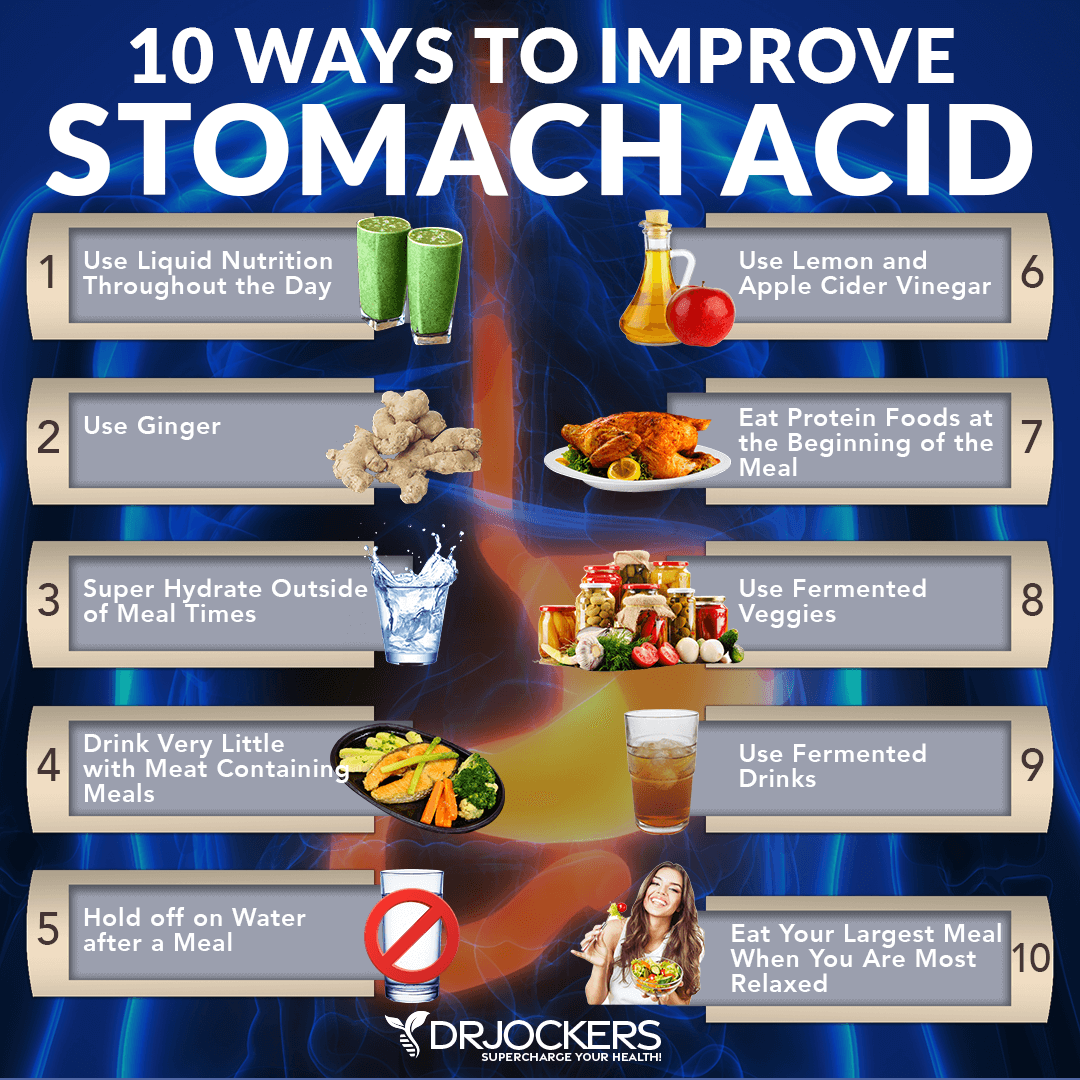
Use Magnesium
Magnesium is involved in hundreds of processes in the body. Based on a wide range of research we now know that magnesium actually plays an important role in blood sugar regulation. In fact, a recent study showed that low magnesium stores in the body increase the risk of fatty liver and prediabetes (8).
The best foods for magnesium include leafy greens, pumpkin seeds, sea vegetables, wild-caught fish, avocados, and dark chocolate.
Using additional magnesium supplementation can be very helpful for maintaining high levels of magnesium as well. The forms that I most often recommend include malate, threonate, and glycinate as they have the highest bioavailability. These three forms are combined in Brain Calm Magnesium. I typically recommend using 1-2 servings of this on a regular basis.

Get Plenty of Minerals
In addition to magnesium, getting a complete balance of trace minerals is vital for optimal blood sugar balance.
Eating a balanced diet including trace mineral rich foods such as fermented foods, dark leafy greens, avocados, pasture-raised eggs, natural salts (pink or gray), grass-fed meats, wild-caught fish, bone broth, and sea vegetables is a great way to get extra minerals.
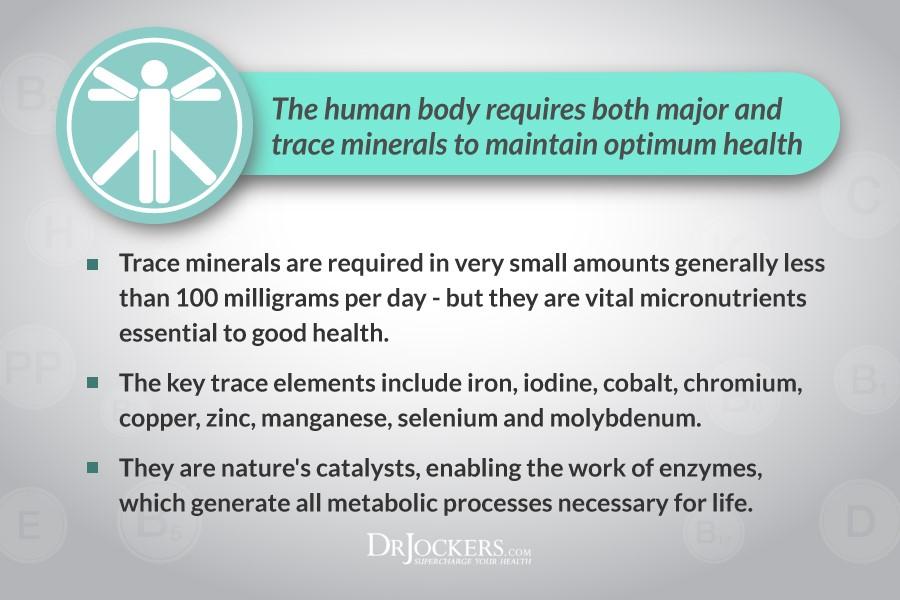
Ketogenic Diet
Once who have worked on reducing carb intake and adopting a diet full of healthy fats, clean proteins, and mineral-rich foods, you may want to consider adopting a ketogenic-style nutrition plan.
The goal of a ketogenic diet is to teach the body to resort to fats for energy rather than sugars. I often find that doing so can be very therapeutic in those individuals who are struggling with hypoglycemia.
If this is something you would like to pursue, I would recommend beginning with a Keto Metabolic Reset as outlined here.
Using things to support ketone body metabolism such as MCT oils and exogenous ketones can aid in the transition while providing the body with a readily available source of energy.
In time, following this nutrition plan will help to balance out blood sugar and improve insulin metabolism. Once this metabolic shift has occurred, many people find that they see a drastic improvement in hypoglycemic episodes.
It will be imperative to monitor both your ketone levels as well as your blood sugar during this time to ensure both remain within healthy ranges. My favorite device for accomplishing this is the Keto Mojo.
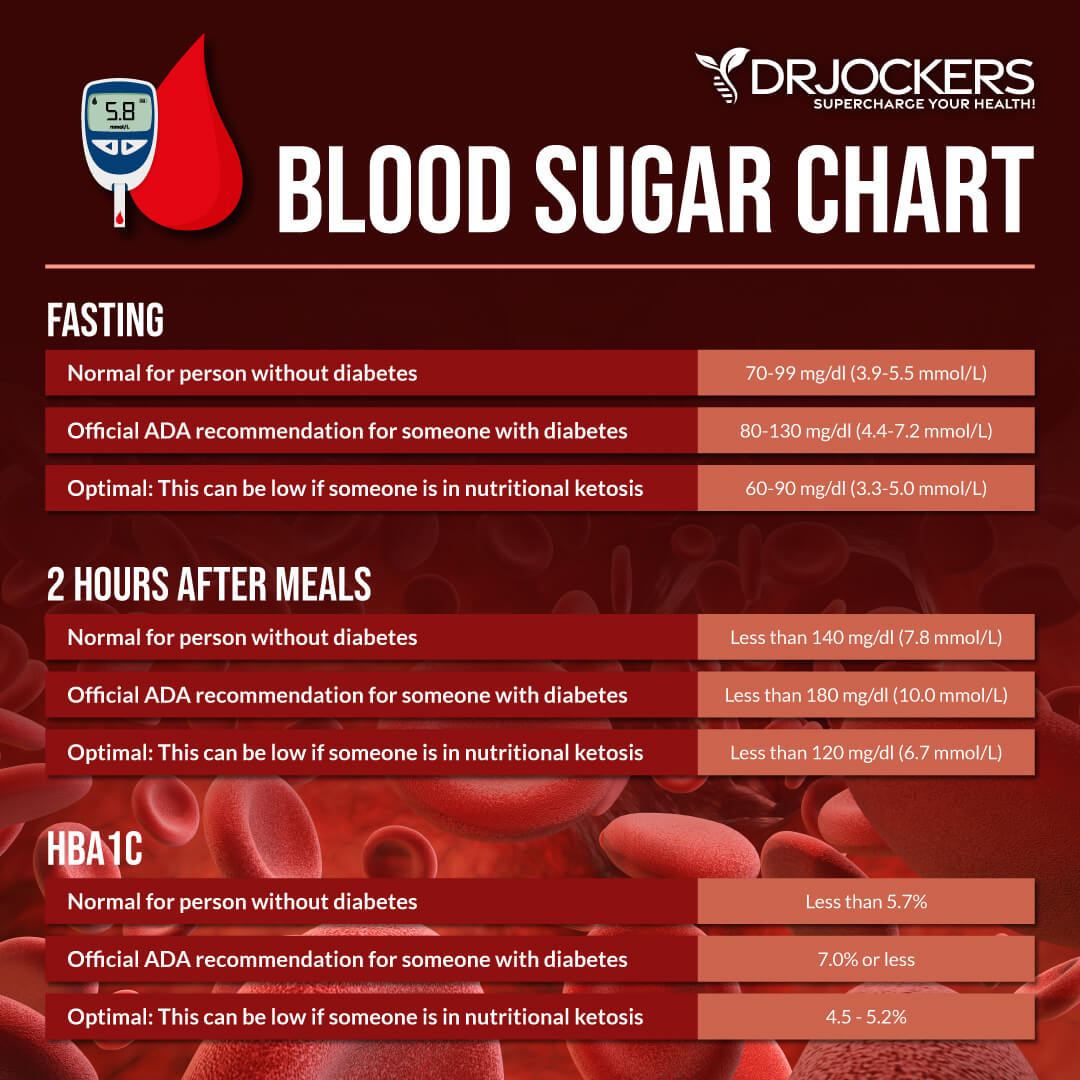
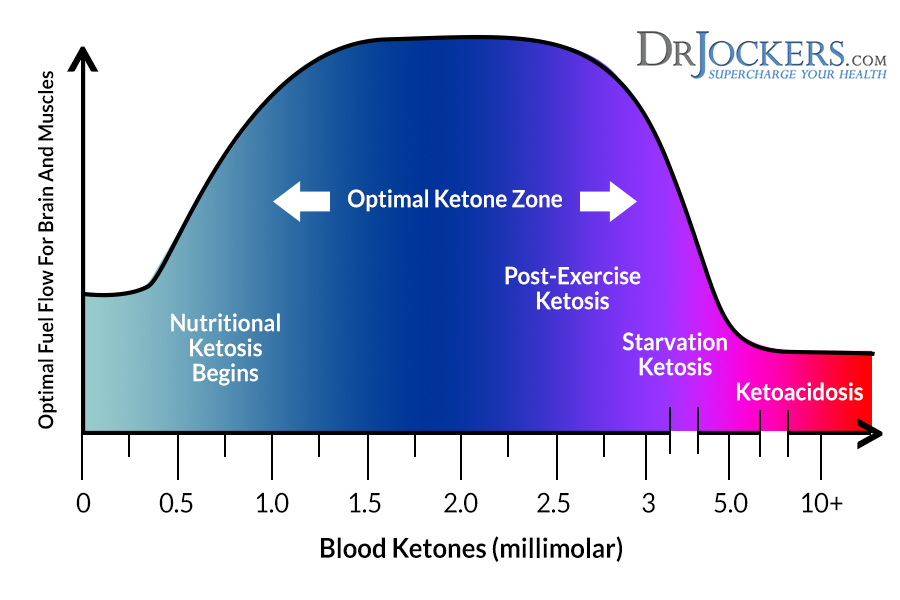
Ketosis Vs. Hypoglycemia
When you begin a ketogenic lifestyle, it is possible that you will feel a bit sluggish at first. This is likely because your body is experiencing temporary hypoglycemia as it begins to learn how to burn ketones as energy instead.
This is why monitoring your levels is so important. As was mentioned already, exogenous ketones and MCT oils can both be helpful during this time.
The key to knowing when you are efficiently burning ketones for energy is that you will begin to feel much higher levels of energy, less fluctuation in energy levels, and sudden hunger will no longer be an issue. Blood sugar readings will ideally reside below 80 mg/dL, which would normally make you feel crummy. The difference is that once you are burning fat instead, you no longer experience hypoglycemia symptoms.
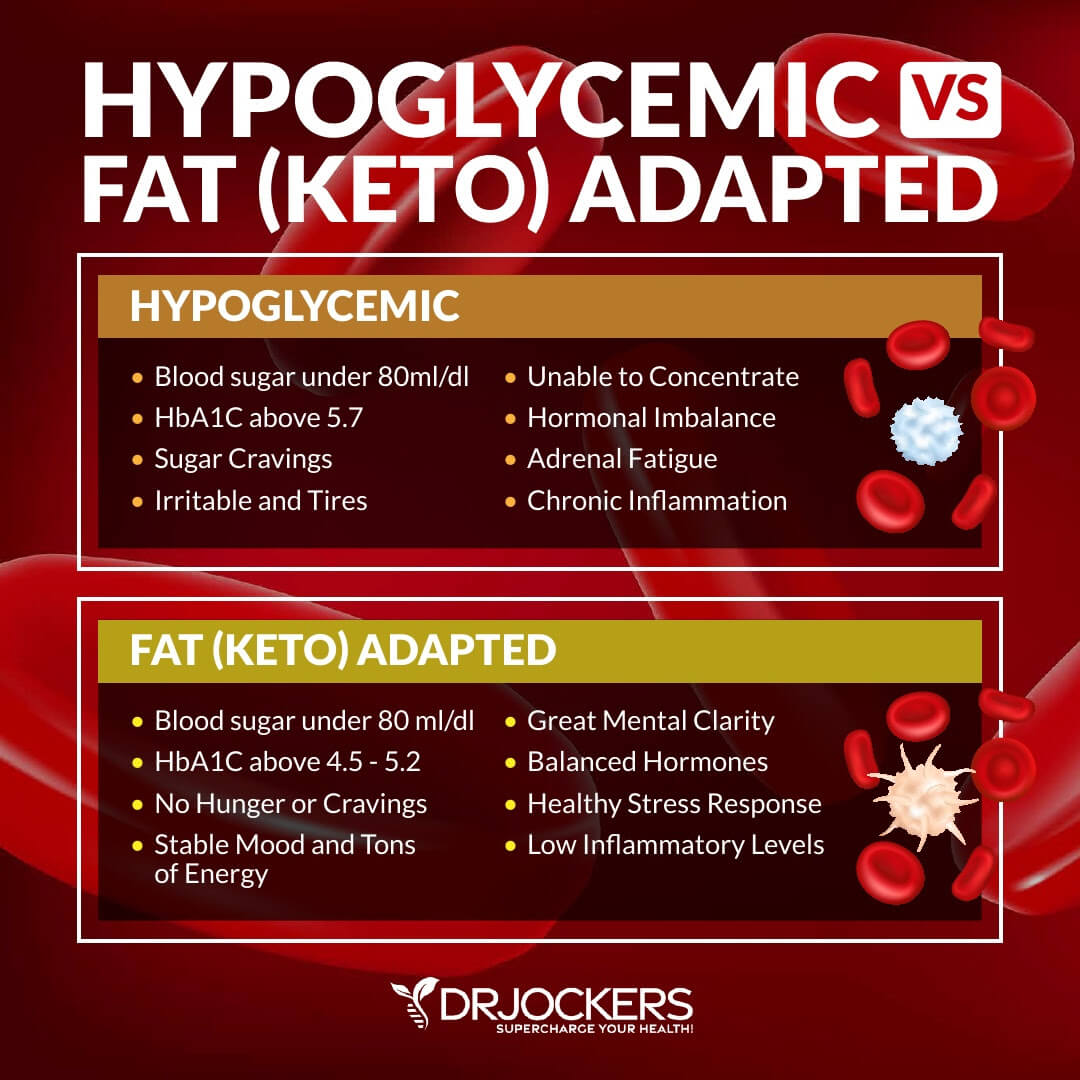
Conclusion on Hypoglycemia
If you often experience hypoglycemia, there are a number of things that can improve this. The first step is reducing carb intake and increasing healthy fats. Adding 20-30 grams of protein to each meal can help to stimulate glucagon which is a more sustainable way of raising blood sugar and keeping it balanced.
After implementing the initial suggestions found in this article, making the shift to a ketogenic lifestyle can be the next step. A ketogenic lifestyle will help to provide an alternative energy source while restoring the blood sugar-regulating mechanisms that were likely causing your hypoglycemic responses in the first place.
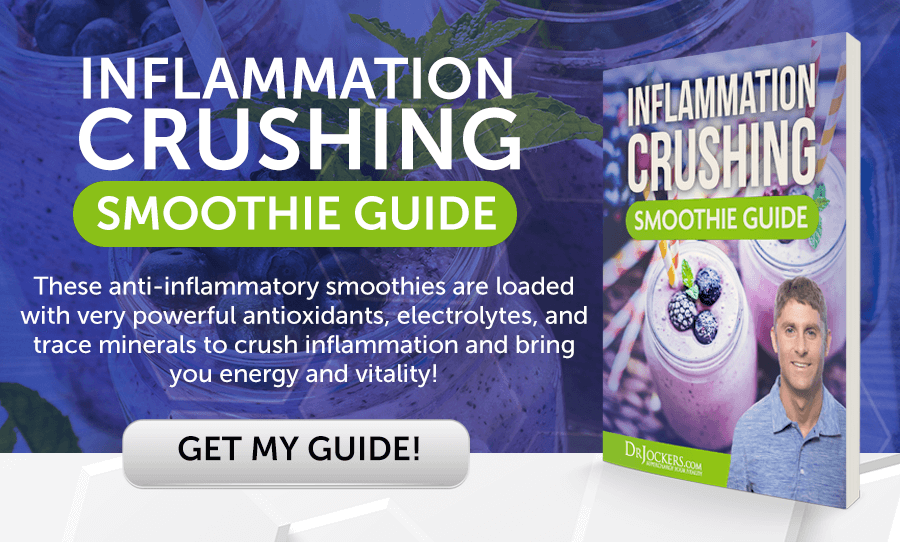 Inflammation Crushing Ebundle
Inflammation Crushing Ebundle
The Inflammation Crushing Ebundle is designed to help you improve your brain, liver, immune system and discover the healing strategies, foods and recipes to burn fat, reduce inflammation and thrive in life!
As a doctor of natural medicine, I have spent the past 20 years studying the best healing strategies and worked with hundreds of coaching clients, helping them overcome chronic health conditions and optimize their overall health.
In our Inflammation Crushing Ebundle, I have put together my very best strategies to reduce inflammation and optimize your healing potential. Take a look at what you will get inside these valuable guides below!




Thank you for all the information, i am thankful you make it so the average person can understand..
I work 12 hour night shifts in healthcare and find my body craving extra carbs due to sleep deprivation. Do you have any helpful tips for those of us living a “mostly” nocturnal schedule?
Hey Deana, here is an article for this! https://drjockers.com/7-ways-prevent-shift-work-disorder/
There are things I do not understand? If you are eating keto, so no sugar and very little carb, why is my bloodsugar in the morning still 7,1mmol/L?? I also did a 5 day fast and my bloodsugar in the morning was too high? What is the reason for that? Where is the sugar coming from?
Here is a helpful article about this Jel: https://drjockers.com/high-fasting-blood-sugar/
What is the difference between the two kinds of hypoglycemia?
Thank you.
Hey Marie – one can be autoimmune based that shuts down your ability to produce insulin. The other is due to the overproduction of insulin.
I am experiencing Hypoglycemic symptoms (shakiness and extreme hunger) 3 hours after eating and would love to try Keto but I also have had three gallbladder attacks over the past two years so I have been avoiding excess high fat healthy foods. (I eat mostly organic, no gluten or dairy, whole foods diet with very little sugar, less than two servings of carbs per day (oatmeal, rice, quinoa or potato), occasionally have a few GF crackers. Heavy meat eater, meat is satisfying and makes me happy but I still get blood sugar crashes.
What do you recommend for me to correct my low blood sugar swings with out having to eat high fats?
Hello Dawn, I would recommend lowering your carbs and increasing your protein, aiming for 40-50 grams of protein per meal and 20-25 grams of fat. This will help you reach satiation.
I have been fasting on bone broth and just a little bit of coconut and cashew yogurt. I also had a very small amount of applesauce yesterday. About 2/3 of the day through my second day I had some broth from beef stew, carrots. Two hours later I ended up in the ER again due to bloody diarrhea which is the reason I was there two days before and the reason I was doing the fast. They’re still not sure what’s going on with me. Anyway I got back on the bone broth fast… Woke up so weak and just a tiny bit shaky took my blood sugar and it’s 68. I’m having some bone broth and check it again.
Is it normal to get low blood sugar when fasting on bone broth?
This morning I added a little moringa powder and a little spirulina to my bone broth. Hoping that will help
That is strange but it could be due to a histamine intolerance. https://drjockers.com/suffering-histamine-intolerance/